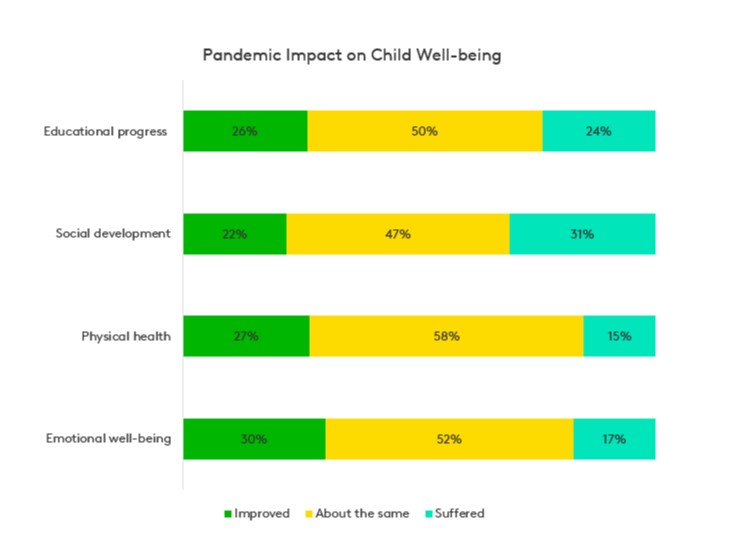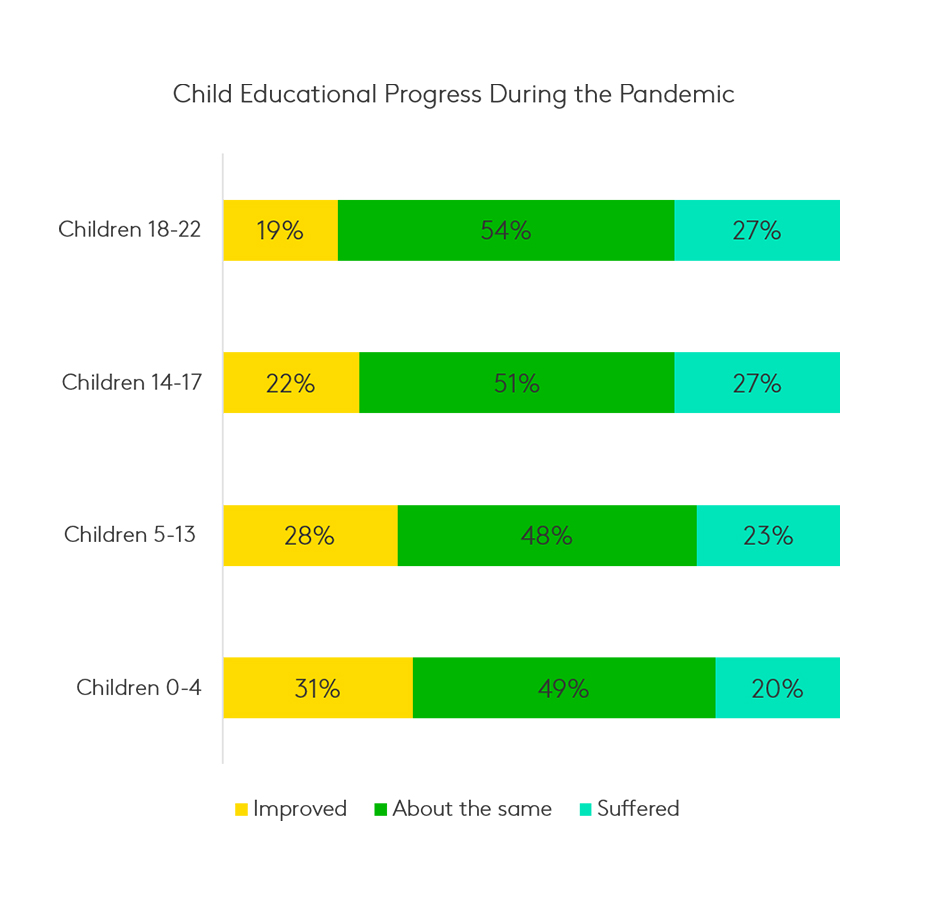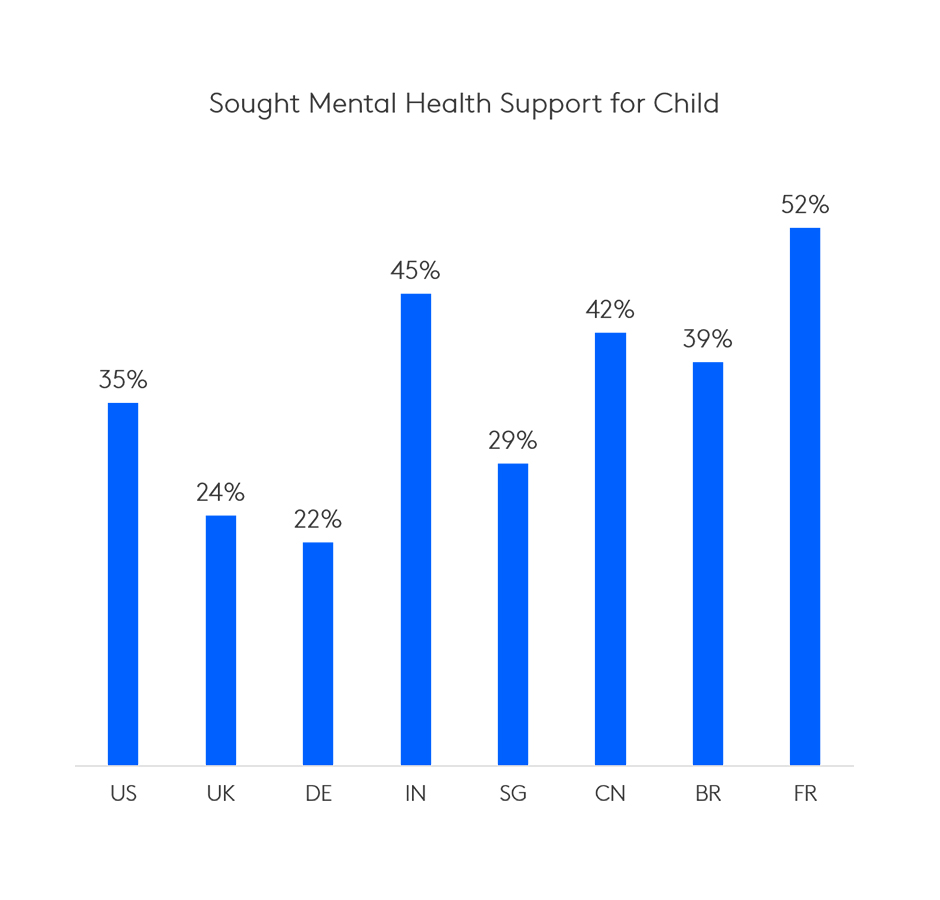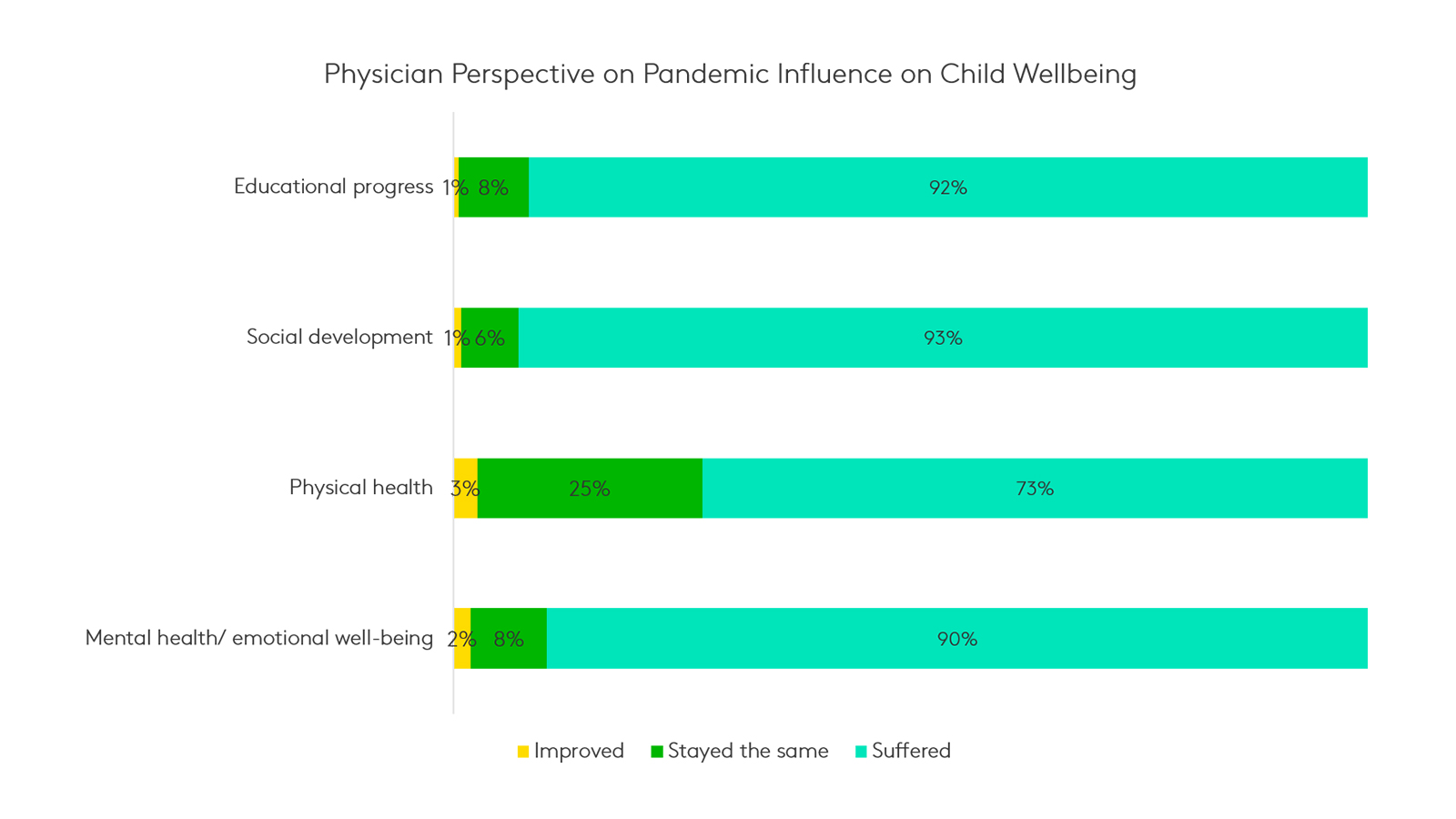Daily life for families has been significantly impacted due to the COVID-19 pandemic. And with school and childcare facility closures forcing many children to remain at home, the development of our future generation has been disrupted.
But what are the biggest concerns of parents?
Social development
Social development is the area where parents feel their children (aged 0-22 years old) have been most negatively impacted. Globally, 1 in 3 parents report that their children's social development has suffered during the pandemic (31%).

This is similar across all age groups, although young adults were reported to be most negatively impacted (16%). Social development was reported to be most improved in the youngest age group (0-4 years old), with 26% seeing an improvement.
When asked about concerns regarding young adult children, 34% of parents said their children missed the social experience of higher education. This was followed by concerns finding employment (24%) and financially supporting themselves (22%).
Educational progress
Educational progress is the second highest area of well-being that has been negatively impacted during the pandemic. Globally, 1 in 4 parents believe their children's education has suffered. Like social development, parents believe that their the educational progress of older children has suffered more than that of younger children. 1 in 3 parents say their children aged 0-4 experienced an improvement in their educational progress.

Mental health and emotional well-being
Globally, 17% of parents report their children's mental health and emotional well-being to have suffered during the pandemic. Almost 1 in 3 parents (30%) interviewed state that it actually improved during the pandemic. The emotional well-being in younger children was impacted less negatively according to their parents (only 14% say they suffered).
However, the same wasn’t reported for the mental health and well-being of their young adult children. Parents say it suffered for 24% of 18–22-year-olds.
Over a third of parents (35%) have sought mental health support for their child during the pandemic. French parents have reached out the most for support (52%) whilst German (22%) and British (24%) parents have sought support the least out of the countries covered in the study.

Physical health
Next to emotional well-being, physical health was the aspect of children's well-being that parents reported improved the most (27%).
Younger children were reported to improve more than older children, with 32% of children aged 0-4-years old and 29% of children aged 5-13 improving. Children 18-22-years-old were reported to improve the least (18%) and suffer the most (20%).
Physical health was reported as "about the same" by 58% of parents – making it the well-being category where the least impact was reportedly felt.
What do physicians think has had the biggest impact on child well-being?
Primary care and pediatric physicians across the US and Europe have a different perspective to parents when it comes to the well-being of children during the pandemic.
Nine out of 10 physicians believe social development, educational progress and the mental health or emotional well-being of children has suffered due to the pandemic. Just under three quarters (73%) of physicians believe the physical health of children has suffered, whilst a quarter think it has stayed the same.

Get more answers
For more findings from this study, access the complete Community Report: Connecting with Parents and Caregivers. Find additional country specific answers on family leave and day care, the impact of home-schooling on employment, parenting young adults, the impact on caregivers, and more.
About this study
This research was conducted online among 5,865 people across eight global markets: US, UK, France, Germany, India, Singapore, China and Brazil.
Additional Physician interviews were collected from 1,249 Primary Care and Pediatric Physicians across US, UK, Germany, Spain, Italy and France.
Respondents were sourced from the Kantar Profiles Network and Kantar’s proprietary Physician panel. All interviews were conducted as online self-completion between 22 July and 9 August 2021.
Find Kantar's other Community Reports here.

